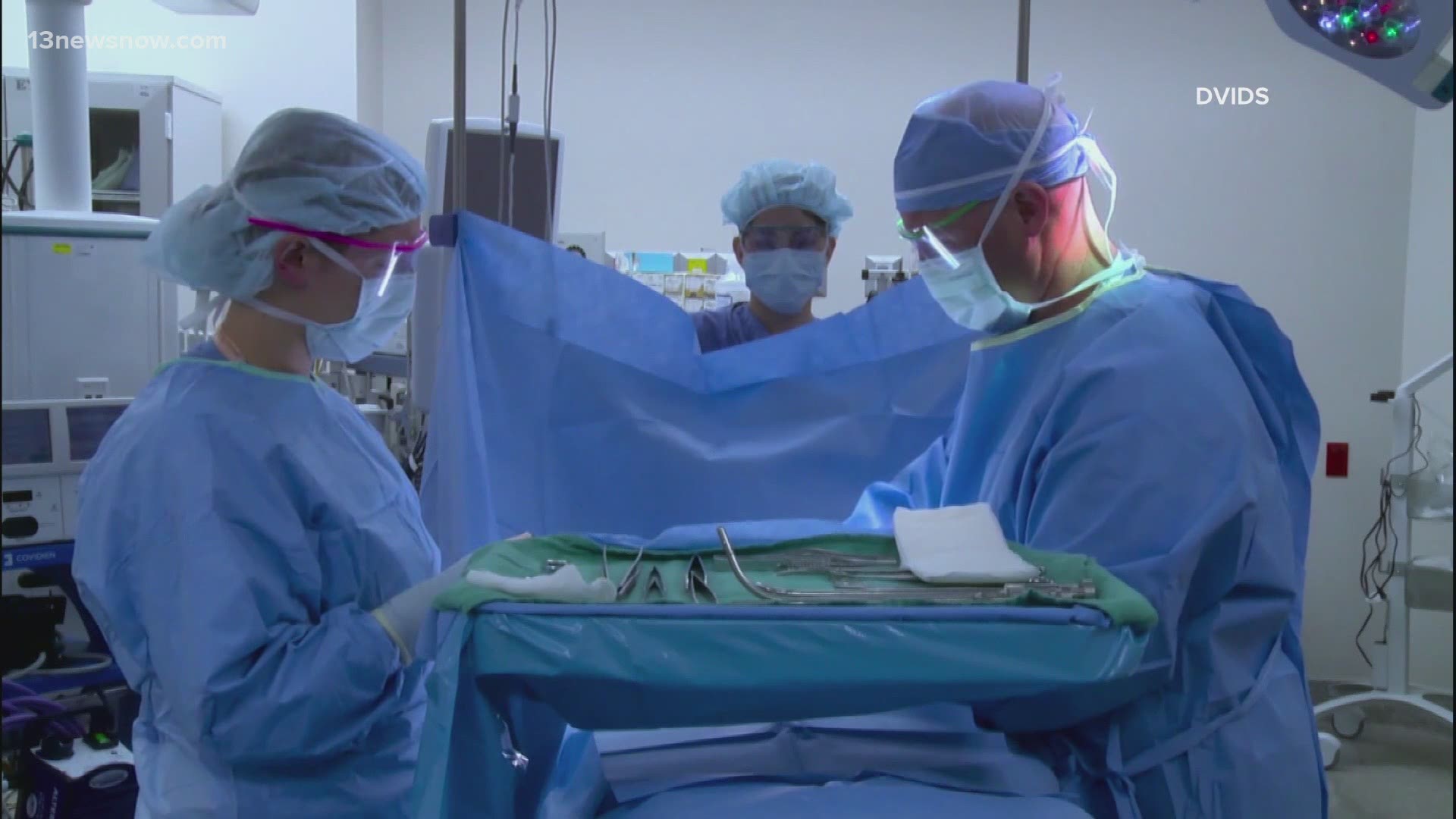WASHINGTON — Charlottesville native Dr. Lorna Breen seemed to have it all. Then, she got COVID-19.
"Lorna was an accomplished and respected emergency room physician in New York City, and at the opening wave of the pandemic in New York, which was an epicenter, she was just flooded with illness and death in a way which was extremely difficult for somebody whose whole goal was to try to save people," said Senator Tim Kaine (D-Virginia).
Breen recovered, but then came back to work too quickly. And she was reluctant to seek any help out of fear it might harm her career.
"And when she went back, it was then that my sister suffered what I would describe as a catastrophic mental health injury that she would never recover from," said Breen's sister, Jennifer Breen Feist.
Last April 26, Breen took her own life. Sadly, she's not the only one.
Up to 400 physicians die by suicide every year in the United States.
With one completed suicide every day, U.S. doctors have the highest suicide rate of any profession, with the number of physician suicides being more than twice that of the general population.
"Health care burnout has been an issue, it's not a brand new issue, it's something that was on the rise, and COVID has just kind of poured gasoline on the fire," said Emily Boucher, a COVID-19 intensive care unit nurse in Abingdon, Virginia.
Now there is the Dr. Lorna Breen Health Care Provider Protection Act, sponsored by Kaine.
Specifically, the bill:
- Establishes grants for training health profession students, residents, or health care professionals in evidence-informed strategies to reduce and prevent suicide, burnout, mental health conditions, and substance use disorders. The grants would also help improve health care professionals’ well-being and job satisfaction.
- Seeks to identify and disseminate evidence-informed best practices for reducing and preventing suicide and burnout among health care professionals, training health care professionals in appropriate strategies, and promoting their mental and behavioral health and job satisfaction.
- Establishes a national evidence-based education and awareness campaign targeting health care professionals to encourage them to seek support and treatment for mental and behavioral health concerns.
- Establishes grants for employee education, peer-support programming, and mental and behavioral health treatment; health care providers in current or former COVID-19 hotspots will be prioritized.
- Establishes a comprehensive study on health care professional mental and behavioral health and burnout, including the impact of the COVID-19 pandemic on such professionals’ health.
Kaine says getting this measure passed is urgent.
"We've got to keep our healers healthy," he said.
The first stop for the bill will be the Senate Committee on Health, Education, Labor and Pensions.
The bipartisan bill already has a lot of support.
The legislation is also cosponsored by Senators Angus King (I-VT), Tammy Baldwin (D-WI), Mark R. Warner (D-VA), Tina Smith (D-MN), Shelley Moore Capito (R-WV), Jacky Rosen (D-NV), Kirsten Gillibrand (D-NY), Kyrsten Sinema (D-AZ), Debbie Stabenow (D-MI), Susan Collins (R-ME), Chris Van Hollen (D-MD), Mark Kelly (D-AZ), and Jon Tester (D-MT), as well as U.S. Representatives Haley Stevens (D-MI-11), Fred Upton (R-MI-06), Morgan Griffith (R-VA-09) and John Katko (R-NY-24).
Among the more than two dozen organizations endorsing the measure are the American Academy of Emergency Medicine, the Association for Behavioral Health and Wellness and the Federation of State Medical Boards.

